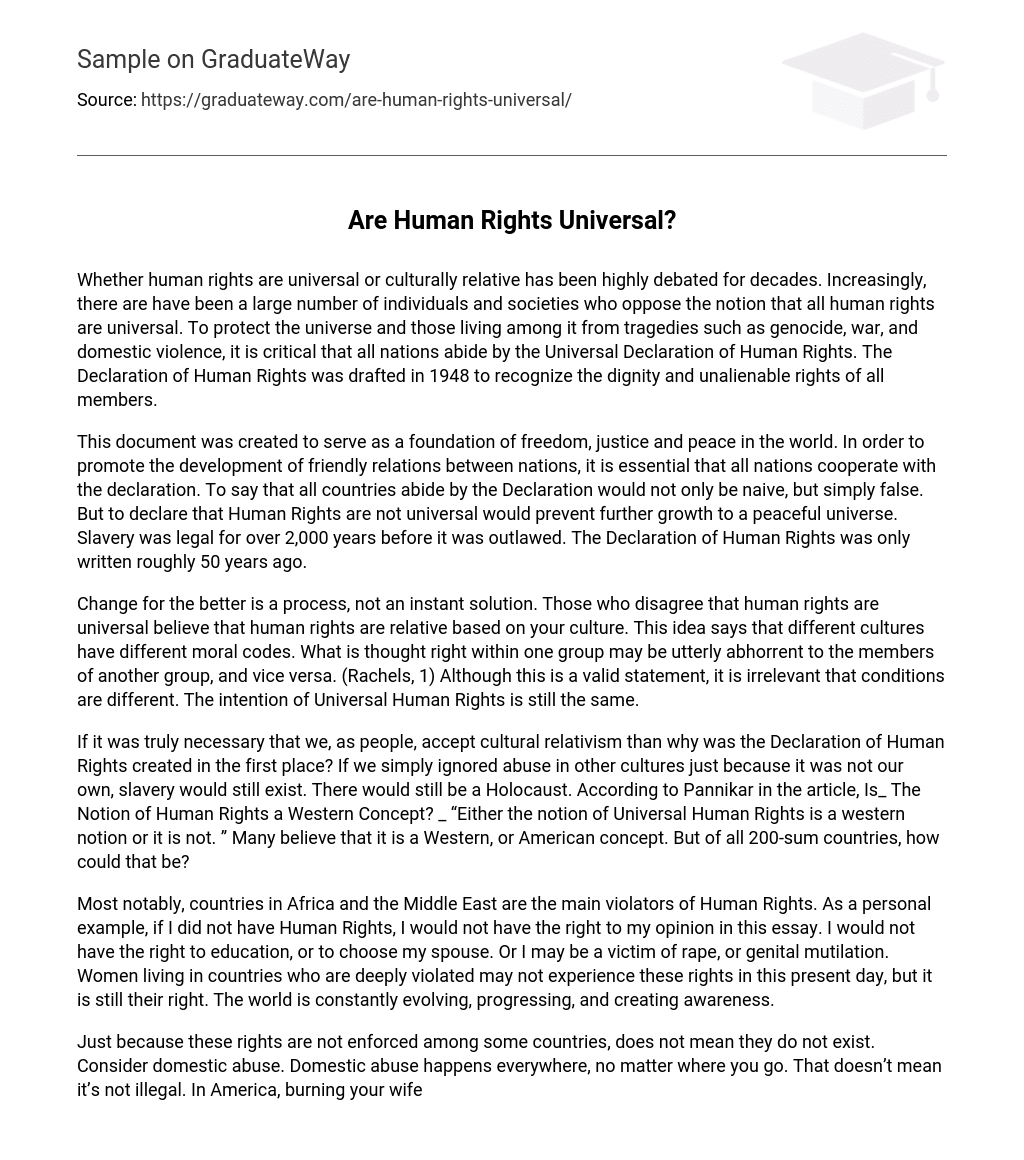The debate surrounding the applicability of human rights, whether universally or in a culturally relative manner, has gained traction. Increasingly, individuals and communities are challenging the notion that all human rights should be universally applied. However, it remains vital for nations to adhere to the Universal Declaration of Human Rights as a means of protecting humanity and averting atrocities such as genocide, war, and domestic violence. Established in 1948, this Declaration sought to recognize and uphold the dignity and inherent entitlements of every person.
This document aims to advance global freedom, justice, and peace. It is crucial for all nations to collaborate in order to cultivate amicable relations between countries and uphold this declaration. Although it would be impractical and inaccurate to assert that every nation adheres to the Declaration, disregarding the universality of Human Rights would hinder progress toward a harmonious world. Slavery remained lawful for over two millennia before being banned. The Declaration of Human Rights was crafted approximately fifty years ago.
The process of self-improvement takes time and cannot be achieved rapidly. Some individuals argue against the concept of universal human rights, asserting that it is contingent on one’s culture. This standpoint implies that various cultures possess their own ethical norms. What may be considered right by one group could be perceived as entirely unacceptable by another, and vice versa (Rachels, 1). Despite the validity of this perspective, it does not alter the fact that the objective of Universal Human Rights remains unwavering.
If we were to accept cultural relativism, why was the Declaration of Human Rights established? Disregarding abuses in other cultures would lead to the continuation of slavery and the Holocaust. In Pannikar’s article titled “Is The Notion of Human Rights a Western Concept?”, it asserts that Universal Human Rights are perceived as either Western or non-Western. While many believe it is Western or American, considering there are more than 200 countries worldwide, how can this be true?
Human rights violations occur primarily in African and Middle Eastern countries, resulting in the deprivation of individuals’ entitlements such as freedom of opinion, education, and choice of spouse. These violations also expose people to the risks of rape or genital mutilation. Nevertheless, women in heavily violated nations continue to cling onto these freedoms. Recognizing that our world is continually evolving, progressing, and raising awareness about these issues is crucial.
Although the enforcement of these rights may vary among different countries, their existence cannot be denied. For instance, domestic abuse is a global issue that transcends geographical boundaries. However, its widespread occurrence does not legitimize it. While practices like acid attacks or physical punishment in response to minor incidents, as observed in Pakistan, might be less prevalent in America, it would be inaccurate to claim that women’s rights are universally respected. The majority of nations have strict regulations concerning such matters and impose severe penalties on those who violate them.
Although some countries do not enforce consequences for certain actions, which emphasizes a distinction, it is important to differentiate between the universal concept of human rights and their enforcement in specific regions. The Universal Declaration of Independence has consistently developed and enhanced since its establishment, indicating significant progress. While we expect further improvement of the rights outlined in the Declaration of Human Rights, there is unanimous agreement that human rights are universal.





